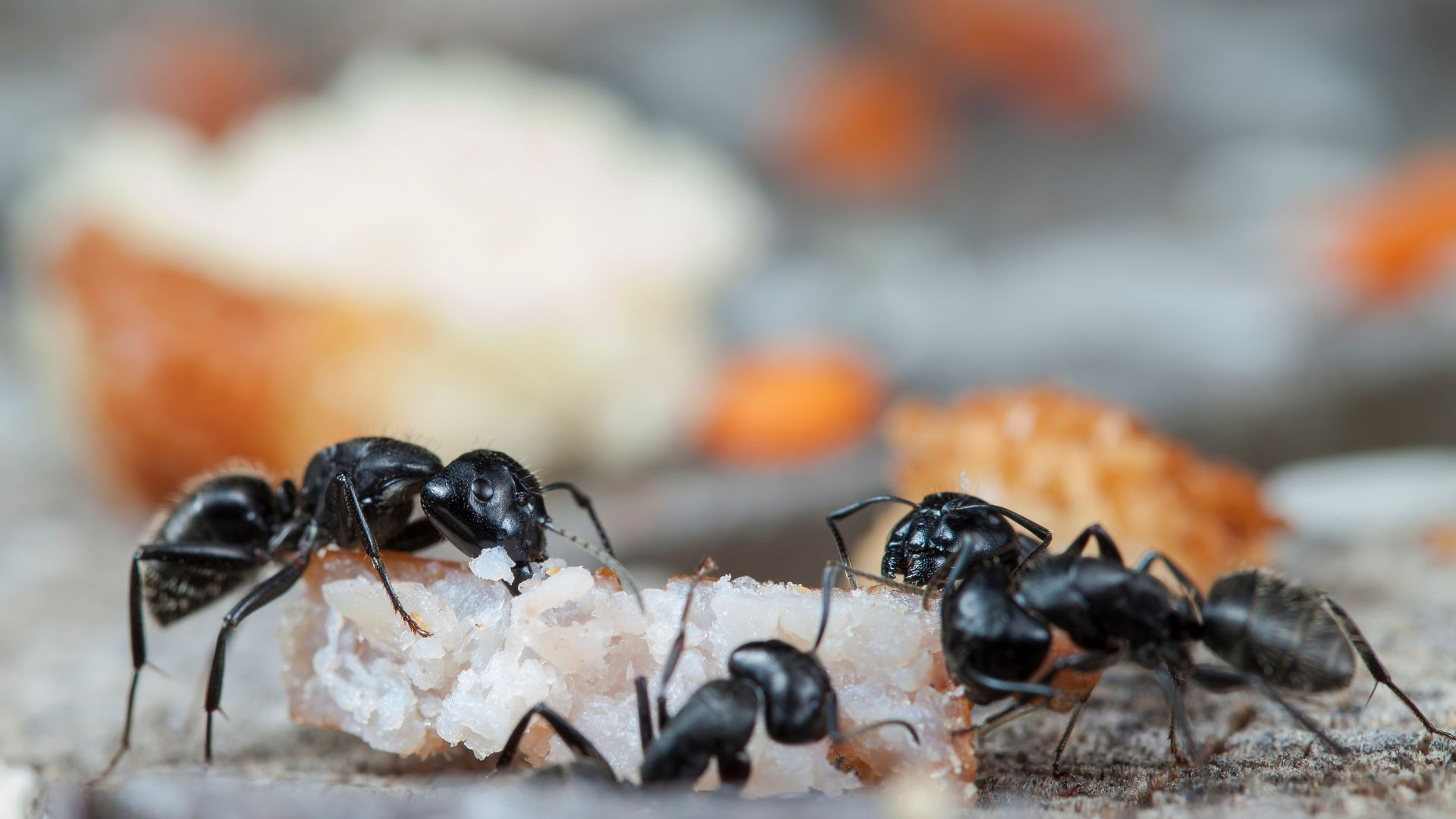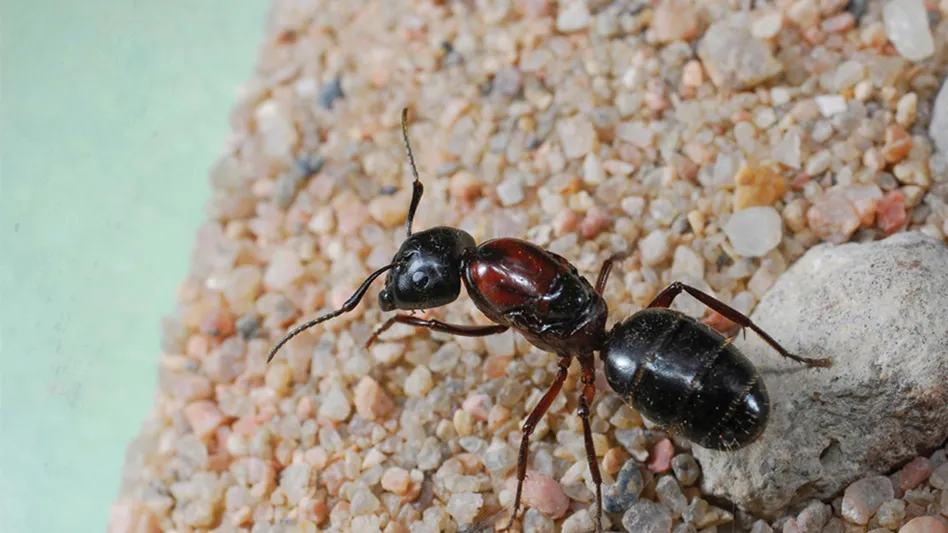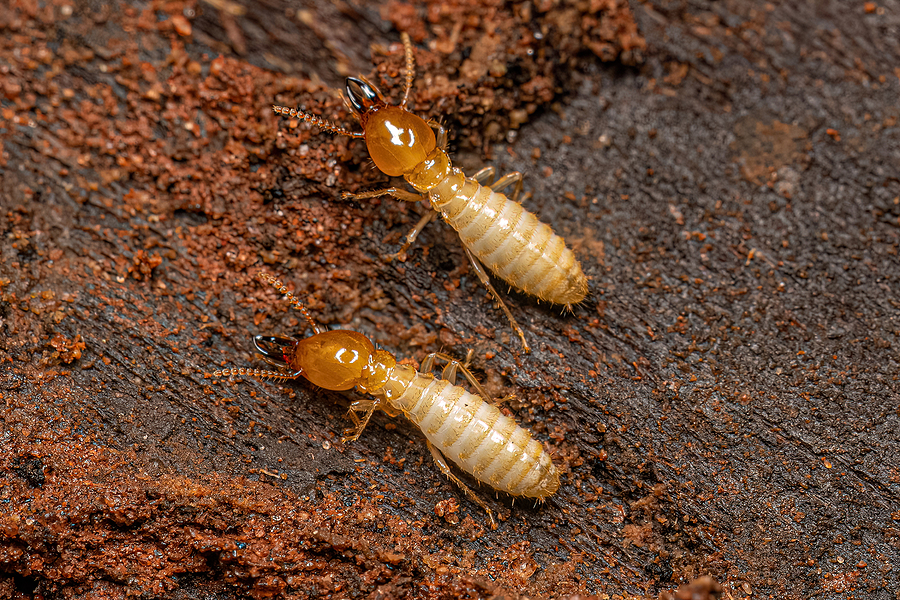Total Ant Control: Strategies and Services to Beat Ant Problems
Total Ant Control: Strategies and Services to Beat Ant Problems
Blog Article
Environmental Impact of Insect Control: Balancing Performance With Sustainability
The ecological influence of pest control is a vital concern that calls for a fragile equilibrium in between achieving performance in taking care of parasites and making sure sustainability of our communities. As we make every effort to protect our plants, homes, and wellness from the hazards positioned by pests, the methods we employ can accidentally harm the environment. From using harmful chemicals that leak right into our soil and water to the unintentional repercussions on non-target types, the repercussions of standard insect control methods are significant. Nonetheless, there are arising techniques that supply hope for a much more sustainable strategy to pest administration. These options not only purpose to attend to the prompt parasite troubles yet likewise think about the lasting health of our world.
Damaging Chemicals in Bug Control
The utilization of harmful chemicals in bug control presents significant ecological and wellness threats that warrant mindful consideration and mitigation techniques. Pesticides, herbicides, and chemicals are generally made use of to eradicate parasites, however their extensive application can lead to unexpected effects. These chemicals can infect soil, water resources, and the air, influencing not only the targeted insects but likewise useful pests, wildlife, and people.

To deal with these threats, integrated pest administration (IPM) strategies are being advertised as a much more sustainable choice. IPM involves a mix of approaches such as biological control, environment manipulation, and the targeted usage of pesticides as a last resource (ant control walkerton nc). By adopting an alternative approach to pest control, we can decrease the ecological and health influences connected with harmful chemicals while effectively managing pest populaces
Effect On Non-Target Species
Taking into consideration the unintentional repercussions of pest control approaches, the effect on non-target species is a critical aspect that calls for detailed examination. While pest control steps aim to target certain pests, other microorganisms in the community might be accidentally affected. Non-target varieties, including advantageous pests, birds, animals, and even plants, can endure indirect or straight harm from chemical applications or organic control methods.
Insecticides made to battle a particular insect bug may damage pollinators like or all-natural killers such as ladybugs. Biological control representatives, if not species-specific, can posture threats to unintended targets, disrupting the environmental balance.
To minimize the effect on non-target species, integrated parasite monitoring (IPM) approaches that stress a holistic strategy to pest control are suggested. These techniques prioritize using environmentally pleasant techniques, lessening damage to helpful microorganisms while effectively managing pest populaces. Conducting extensive danger evaluations and checking the results of bug control efforts are essential action in guarding non-target varieties and promoting overall community wellness.
Soil and Water Contamination
Unexpected environmental effects of pest control methods prolong past influencing non-target species, with substantial effects for dirt and water contamination. Chemicals, herbicides, and chemical fertilizers used in parasite control can leach right into the dirt and contaminate groundwater, presenting a threat to both aquatic and terrestrial ecosystems. Dirt contamination can interrupt the balance of bacteria essential for nutrition cycling and plant growth, leading to lowered soil fertility and efficiency. These chemicals can persist in the setting for extensive durations, building up in the soil and potentially going into the food chain.
Water contamination is one more crucial issue connected with parasite control methods. Overflow from farming areas treated with chemicals can lug these chemicals right into neighboring water bodies, affecting water microorganisms and water high quality. Impurities in water resources can have far-ranging effects, impacting not just aquatic life however additionally human health through the consumption of contaminated water or aquatic microorganisms. To minimize dirt and water contamination from parasite control tasks, integrated bug administration methods that prioritize sustainability and reduce chemical inputs are crucial.
Air Air Pollution From Chemical Usage
Exposure to air-borne pesticides during agricultural applications postures a significant concern for air pollution control steps. When pesticides are sprayed onto crops, they can volatilize into the air and type unstable organic substances (VOCs) and various other air-borne contaminants. These chemicals can add to the development of ground-level ozone, a significant part of smoke that can have destructive impacts on human wellness, crop performance, and overall air quality. Furthermore, pesticide drift, where chemicals are lugged by the wind to unplanned areas, can bring about the contamination of nearby ecosystems and water bodies.

Strategies for Sustainable Pest Control
In the realm of farming practices, executing sustainable pest control approaches is extremely important for maintaining ecological equilibrium and securing plant yields. Sustainable insect control emphasizes using environmentally pleasant approaches to take care of bug populations effectively while lessening damage to non-target organisms and ecosystems. Integrated Insect Management (IPM) is an extensively embraced approach that integrates biological, social, physical, and chemical control approaches to attain lasting parasite administration options.
Crop turning and diversification are additionally reliable strategies to interrupt pest life cycles and develop less desirable problems for insects to thrive. Eventually, by integrating these sustainable bug control methods, farmers can attain an equilibrium in between pest administration performance and ecological stewardship.
Verdict
To conclude, the environmental impact of pest control methods need to be thoroughly taken into consideration to stabilize efficiency with sustainability. Hazardous chemicals made use of in pest control see this website can cause soil and water contamination, air contamination, and injury non-target types - termite control. It is vital to implement sustainable bug control approaches to decrease these unfavorable results on the atmosphere and promote a healthier community for future generations
By embracing an all natural strategy to pest control, we can decrease the environmental and health impacts linked with unsafe chemicals while properly handling pest populations.

To alleviate the air pollution created by chemical use, it is necessary to embrace incorporated pest management methods that focus on the use of non-chemical insect control methods, such as crop turning, natural killers, and resistant plant selections. Lasting bug control emphasizes the usage of eco pleasant methods to manage insect populaces properly while reducing injury to non-target organisms and ecosystems. Integrated Pest Monitoring (IPM) is a widely adopted strategy that incorporates biological, cultural, physical, and chemical control methods to attain long-lasting parasite management services.
Report this page